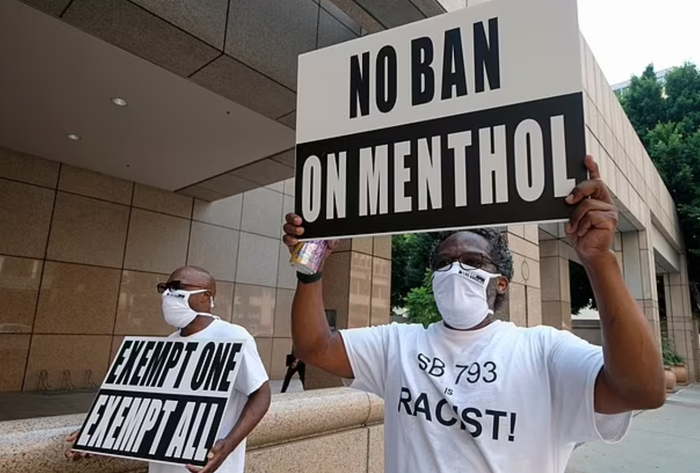The release of a U.S. Surgeon General report has once again set ablaze the conversation surrounding a potential ban on menthol products. This development has significant implications for public health and the tobacco industry.
The U.S. Surgeon General has long been a leading voice in matters of public health. Their reports are based on extensive research and data analysis. In this case, the report likely highlights the specific health risks associated with menthol in tobacco products. Menthol has been shown to have a cooling and numbing effect, which can make smoking more appealing and potentially mask the harshness of tobacco. This could lead to increased initiation of smoking, especially among young people and certain vulnerable populations.
Menthol cigarettes and other mentholated tobacco products have a significant presence in the market. They account for a substantial portion of tobacco sales. For example, many smokers prefer the taste and sensation provided by menthol. However, critics argue that this popularity is precisely what makes it a public health concern. The availability of menthol products may be contributing to the persistence of smoking-related diseases and the high rates of smoking initiation and addiction.
Those in favor of a menthol ban point to several key reasons. Firstly, as mentioned, the potential to attract new smokers, particularly youth and minorities, is a major concern. Studies have shown that menthol marketing and availability may disproportionately affect these groups. Secondly, a ban could lead to a reduction in overall smoking rates. By removing one of the more popular variants of tobacco products, it may encourage smokers to quit or at least reduce their consumption. Additionally, it could have a positive impact on public health outcomes such as a decrease in lung cancer, heart disease, and other smoking-related illnesses.
On the other hand, opponents of a menthol ban have their own arguments. The tobacco industry may claim that a ban would be an infringement on consumer choice. They may argue that adult smokers should have the right to choose the type of tobacco product they prefer. There are also concerns about potential unintended consequences, such as the creation of a black market for menthol products. Some may also question the effectiveness of a ban, suggesting that smokers may simply switch to non-menthol tobacco or other nicotine delivery systems.
If a menthol ban were to be implemented, it would have a profound impact on public health. It could potentially save thousands of lives by reducing smoking rates and related diseases. However, it would also have a significant impact on the tobacco industry. Companies that produce menthol products would face a major loss in revenue. This could lead to job losses and changes in the industry’s structure. It may also prompt innovation in the development of alternative nicotine products that are not mentholated.
The release of the U.S. Surgeon General’s report has reignited the menthol ban conversation, but the outcome remains uncertain. The debate will likely continue in the public arena, with input from health advocates, the tobacco industry, lawmakers, and the public. Future research and data on the effectiveness of menthol bans in other regions or countries may also play a role in shaping the decision. Additionally, any potential legislation would need to consider the various arguments and balance the goals of public health with other factors such as economic impacts and individual rights.
In conclusion, the U.S. Surgeon General’s report has brought the menthol ban conversation back into the spotlight. The decision on whether to implement such a ban will have far-reaching consequences for public health and the tobacco industry, and the debate is sure to continue in the coming months and years.
Read more
WebMD’s Latest Health Scoop: Breaking News And Alerts
Lead In Gasoline: The Hidden Culprit Behind 150 Million Mental Diagnoses?
Home Fragrances: Unveiling Their Impact On Indoor Air And Health


